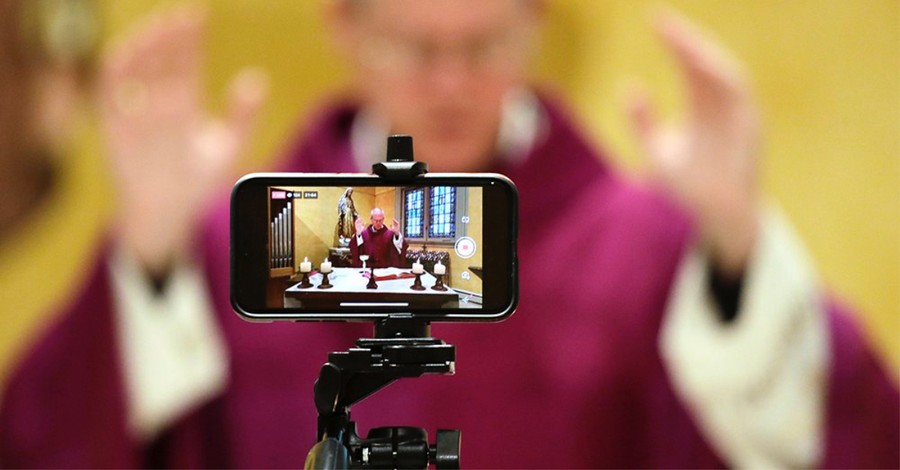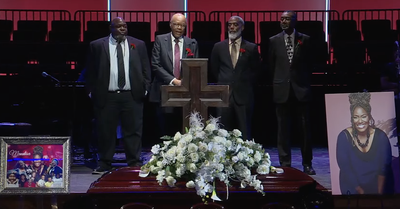
(RNS) — As houses of worship remain closed due to shelter-in-place orders across most of the United States, and significant numbers of them stream their worship services online, clergy and others are no doubt asking how well virtual delivery is feeding the faith of their members.
Some answers can be had from a Pew Research Center (via the Roper Center) survey conducted April 20-26, in which Americans were asked about their religious faith and how their houses of worship have reacted to the changes brought about by COVID-19.
The first bit of good news is how many people said their houses of worship were able to go online. Of those affiliated with a religious tradition, 81.2% indicated that their house of worship had shifted to broadcasting services over the internet.
Even better from the clergy’s point of view is that their members who have gone online report a larger growth in faith than those whose services have not moved to online streaming. Of those who had moved online, 42.4% said that their faith had grown stronger. For those without an online service to watch, the share of those who said that their faith had grown was a more modest 30.9%. Only very small shares of either group said that their faith had gotten weaker because of COVID-19.
It’s perhaps little surprise that the beneficial effect of online worship is especially true for those who attended services most frequently before the pandemic. At almost every attendance level, those who had said that their house of worship was streaming services online more likely to say that their faith grew than those who had no online viewing option. In most cases, the difference was 10 percentage points.
The survey also allayed fears that age or economic disadvantages have created large demographic disparities when it comes to accessing streaming services. For instance, those who are 65 and older were just as likely to say that their institution was streaming services as the youngest respondents in the sample. Only African Americans as a group were slightly less likely to say their churches were online, compared with white and Hispanic respondents.
There are some differences based on education. More highly educated respondents were 6 points more likely to have streaming services compared with those with a high school diploma or less. Evangelical churches were nearly 10 points more likely to go online than Catholic parishes.
So while a furor builds about reopening churches sooner rather than later, it’s worth bearing in mind that in our current situation many houses of worship are still providing spiritual care for their members and many have benefited from virtual services, especially for their regulars.
The views expressed in this commentary do not necessarily reflect those of Religion News Service and Christian Headlines.
Article originally published by Religion News Service. Used with permission.
Photo courtesy: ©RNS/AP Photo/Elaine Thompson
Ryan Burge is an assistant professor of political science at Eastern Illinois University, a pastor in the American Baptist Church and author of The Nones: Where They Came From, Who They Are, And Where They Are Going. He can be reached on Twitter at @ryanburge. The views expressed in this commentary do not necessarily reflect those of Religion News Service or Christian Headlines.










